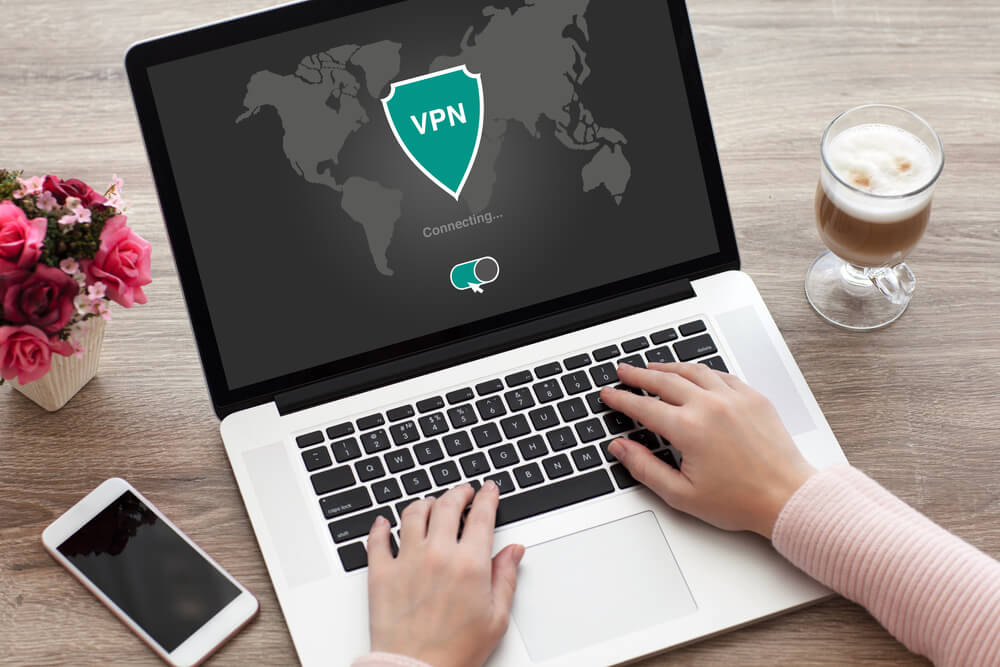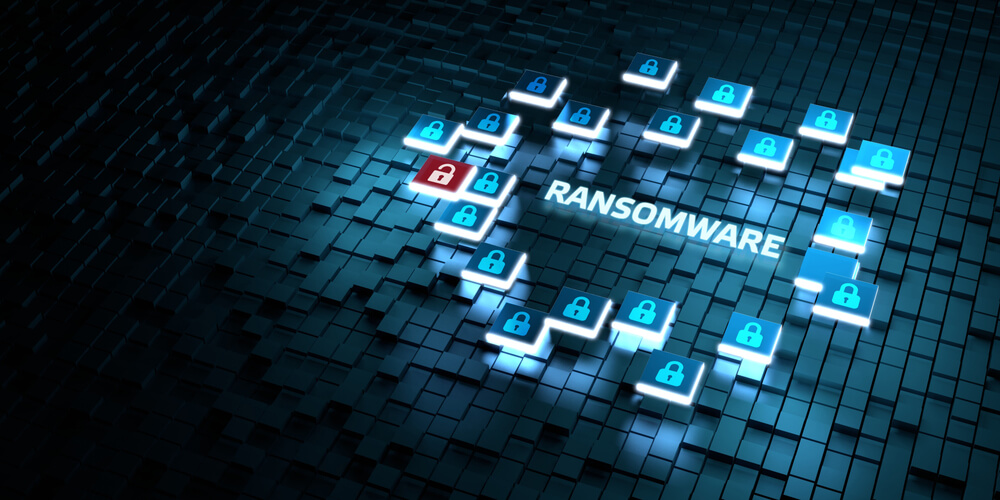Ransomware is becoming a more prominent internal issue for businesses as technology continues to thrive in the workplace. It’s estimated that businesses will fall victim to a ransomware attack every 11 seconds in 2021.[1] Ransomware is a type of malware that employs encryption to hold an individual’s information at ransom.
Essentially, the encrypted information prevents the victim from accessing files, applications, and even databases. If you don’t have backup software, this can be an even bigger problem. To restore access, the attacker requires a ransom.
When businesses face a ransomware attack, it’s important to act quickly. The malware will begin spreading across your network and then quickly targeting things like your databases and file servers.
Unfortunately, businesses are one of the biggest victims of cyberattacks. This is because companies are easy and profitable targets.
Many businesses have a lot of revenue flowing in and out of the company. The more money your company has, the more likely an attacker will want to target your company.
At the same time, businesses are often easy targets because they don’t have the security software or practices to strengthen their business against attacks. Learn about ransomware prevention best practices below.
How Can Ransomware Affect Businesses Long-Term?
Without ransomware protection best practices, companies run the risk of becoming victims of a cyberattack. But companies must prioritize proper security solutions as ransomware can have long-term effects on the company.
Let’s take a look at a few examples. Ransomware steals sensitive information, including business financial records, customer information, and more. If your company faces a ransomware attack, this will quickly break the trust between you and your customers or clients.
Ultimately, no customer wants their information stolen. When this happens, they likely won’t feel inclined to continue doing business with your company.
But that’s not all, though. Businesses also need to consider the cost of quickly rectifying the issue. Businesses will need to decide to either pay the ransom to potentially recover data or hire an IT professional to try and recover as much data as possible.
Even worse, a ransomware attack can lead to a temporary shutdown of your company, resulting in financial loss. There is also the potential for a permanent shutdown.
With that said, companies must get help immediately from an IT professional if they suspect ransomware.
So how can companies protect their business against ransomware? We’re going to share six easy ways businesses can reduce their risk of a ransomware attack.
6 Ransomware Protection Tips
The best way to reduce your risk of ransomware is by having effective security solutions in place. Business owners don’t just need to know the ransomware protection best practices, but all employees also need to know them. Here are six tips you need to implement to protect your company.
1. Avoid Clicking Unsafe Links

Links are one of the easiest ways for attackers to infect your computers and software. In fact, it’s not uncommon for attackers to pose as a reputable organization or trusted site with the hopes that you or someone from your team will click on the link.
Once someone clicks on the link, malware will start downloading.
With that said, businesses should never click on spam messages, messages that seem unusual, or unknown websites. You never know when one of these links can hold a virus that can quickly turn your organization upside down.
2. Don’t Open Suspicious Email Attachments
Similar to links, companies must never open suspicious email attachments. This is another method that cyber attackers use to infect a business with malware.
Sending and receiving email attachments is commonplace in most organizations. As such, it’s extremely critical that owners and employees pay attention to every email attachment they receive.
There are a few ways you can spot a potentially harmful email attachment. For example, pay attention to whether the email contents look unusual such as misspelled or missing words or emails that create a sense of urgency. Additionally, be sure to pay attention to the sender and whether their information is correct.
3. Use Backup Software to Recover Data
Unfortunately, businesses can sometimes have all the right security measures and still experience a ransomware attack. In the event this happens, it’s important to prepare yourself.
Companies hold a lot of vital information such as the company’s financial records, employee personal information, customer information, and more.
The last thing you want to do is lose all of that data for good. However, this is a reality for many companies who choose not to use backup software.
When you perform a backup, you will essentially be creating a recoverable copy of data in the event you experience ransomware or data lost due to a hardware problem.
Being able to back up this information gives businesses peace of mind and an ability to continue business operations. With that said, if your company doesn’t have a plan to backup sensitive data, it’s time to get one.
4. Keep Programs and Operating Systems Up-to-Date
One of the best security solutions is to keep all programs such as security software and operating systems up-to-date. This is an excellent way to steer cyber attackers away. Too bad that many businesses fail to focus on this aspect of their security practices. A cybersecurity assessment helps businesses identify vulnerabilities and create a plan of action.[2]
When your programs aren’t up-to-date, this creates an open door for attackers to come in and infect your programs and operating systems. For this reason, businesses need to check for updates to reduce vulnerabilities in their infrastructure routinely.
5. Use a VPN on Public Wi-Fi Network

There are times when work needs to leave the office. You might find yourself quickly sending over documents while on the go, or you might even have an employee working remotely where they find themselves set up at a local coffee shop.
In either case, your business is at risk if you’re using a public Wi-Fi network. Public networks make it easy for attackers to gain access to information, which is why it’s important to use the proper security software such as a VPN when you or your employees connect to a public network. VPNs create a data tunnel between a person and the local network and an exit link in another location. This makes it seem like an individual is in another location, making it difficult for a cybercriminal to pinpoint where you are.[3]
VPN stands for virtual private network and is a way to give individuals privacy and anonymity when using the web by creating a private network from a public connection.
By doing this, businesses can still work efficiently while greatly reducing their risk of being victim to a ransomware attack.
6. Don’t Use an Unknown USB Stick
This might come as a surprise, but some attackers are crafty enough to put a virus on a USB stick and leave it around the area hoping that someone uses it.
The moment you stick the USB into the computer, it will infect it with malware. This is why it’s important never to use a USB stick or any other storage media that you aren’t aware of. You might find it beneficial to keep all company products labeled and stored securely when not in use.
Is your company prepared to prevent a ransomware attack? Ransomware is a serious problem that affects businesses. The good news is that you can take measures to reduce your company’s risk of a ransomware attack.
Be sure to use these ransomware protection tips to help safeguard your company. If you believe that a ransomware attack already compromises your company, don’t hesitate. Contact us today if you’re interested in IT solutions for your business.

